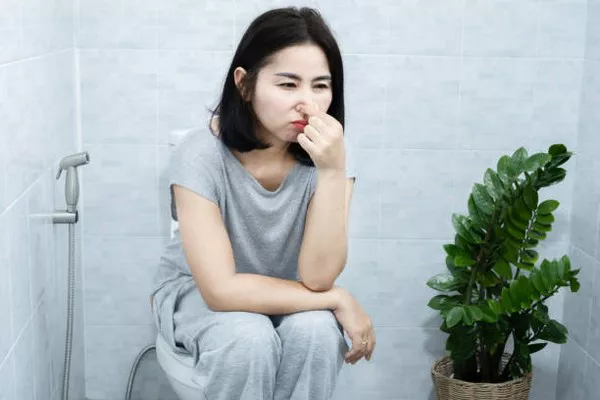Diarrhea following gallbladder surgery, also known as cholecystectomy, is a common concern for many patients. This article aims to shed light on why diarrhea occurs after gallbladder removal and provide insights into managing this condition.
The Role of the Gallbladder
The gallbladder is a small, pear-shaped organ that stores bile, a digestive fluid produced by the liver. Bile aids in the digestion and absorption of fats. When the gallbladder is removed, the body must adjust to the direct release of bile into the small intestine.
12 Causes of Diarrhea After Cholecystectomy
1. Bile Overload: Without a gallbladder to store bile, the liver releases it continuously into the small intestine. This can lead to an excess of bile, which can hasten the passage of food through the intestines, causing diarrhea.
2. Fat Malabsorption: Bile is crucial for the digestion and absorption of fats. After gallbladder removal, the body may struggle to break down and absorb fats effectively, leading to fatty stools and diarrhea.
3. Ileus: Surgery can sometimes cause a temporary paralysis of the intestines, known as ileus, which can result in diarrhea as the body tries to clear the intestines.
4. Food Intolerance: Some patients may develop new food intolerances or sensitivities after surgery, particularly to fatty or spicy foods, which can trigger diarrhea.
5. Bile Flow Disruption: The gallbladder’s primary function is to store and concentrate bile, which is produced by the liver to aid in the digestion of fats. After cholecystectomy, the gallbladder is no longer available to store bile, resulting in a continuous flow of bile from the liver into the small intestine. This unregulated release of bile can lead to an overload of bile in the intestines, especially if the body’s ability to reabsorb bile is exceeded.
6. Bile Acid Malabsorption (BAM): When bile acids are not properly reabsorbed in the small intestine, they can pass into the large intestine in higher concentrations. There, they stimulate the secretion of water and electrolytes, leading to diarrhea. This condition is known as bile acid malabsorption and is a significant contributor to diarrhea post-cholecystectomy.
7. Altered Digestive Transit: The removal of the gallbladder can accelerate the transit of food through the gastrointestinal tract. This is because bile is continuously introduced into the small intestine, which can “take the brakes off” the normal pace of digestion, leading to quicker movement of food and water through the system and resulting in diarrhea.
8. Changes in Bile Acid Synthesis and Regulation: After cholecystectomy, the feedback loop that controls bile acid synthesis may be disrupted. This can lead to an overproduction of bile acids, particularly dihydroxy bile acids, which can further contribute to diarrhea.
9. Physiological Adjustments: The body may need to adjust to the absence of the gallbladder, and this adjustment period can cause temporary digestive disturbances, including diarrhea. Over time, many people’s digestive systems adapt to the new circumstances, and diarrhea subsides.
10. Potential Complications: In some cases, diarrhea after cholecystectomy may be a sign of complications such as bile leak, infection, or injury to nearby structures like the bile duct or small intestine, which can occur during surgery.
11. Diet and Lifestyle Factors: Some individuals may develop new food intolerances or sensitivities after surgery, particularly to fatty or spicy foods, which can trigger diarrhea. Additionally, the body’s need for dietary adjustments post-surgery can contribute to digestive issues if not properly managed.
12. Medication Side Effects: Certain medications prescribed post-surgery can cause diarrhea as a side effect, adding to the gastrointestinal disturbances experienced after cholecystectomy.
Management and Coping Strategies
Dietary Adjustments: Patients are advised to consume smaller, more frequent meals and avoid high-fat foods until their body adjusts.
Hydration: Staying well-hydrated is crucial to prevent dehydration, which can be exacerbated by diarrhea.
Medications: Over-the-counter medications like loperamide (Imodium) can help control diarrhea symptoms. However, it’s essential to consult with a healthcare provider before starting any new medication.
Probiotics: Some studies suggest that probiotics may help restore the balance of gut bacteria and improve digestion after surgery.
Follow-up with Healthcare Provider: It’s important to discuss any persistent diarrhea with a healthcare provider, as it could indicate a more serious issue that requires medical attention.
Conclusion
Diarrhea after gallbladder surgery is a common but usually temporary condition. Understanding the reasons behind it and adopting appropriate management strategies can help patients regain their normal bowel habits and improve their quality of life post-surgery. Always consult with a healthcare professional for personalized advice and treatment.
Related Topics:

